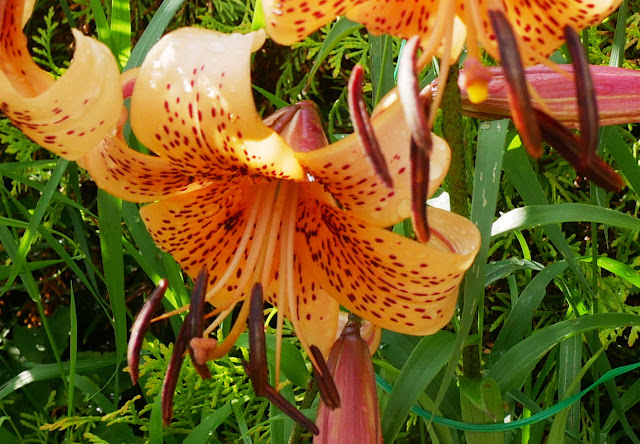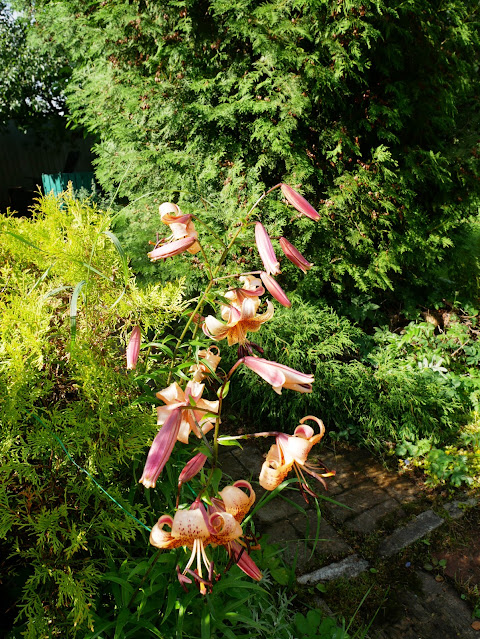I want to tell you about Tagetes, commonly called African marigold, Aztec marigold, American marigold or big marigold.
Tagetes are easy to grow from seed. Almost all seeds germinate and after a week I already saw small plants. This year I planted them in a greenhouse. And I did the right thing - because the cold was around 0 C in May. Young seedlings of Tagetes could easily freeze out.
Perhaps some of you prefer to buy grown seedlings in the garden center or in the supermarket. This is a good option too, just do not rush to plant seedlings in the garden because of the cold weather.
I like that growing Tagetes from seeds you can never be sure what color the buds will be. They can be yellow, red, orange, or a mixture of all shades. See what a variety of colors the Tagetes have in my flower beds.
Here is what the garden encyclopedia writes:
All parts of this unique annual have a taste and smell reminiscent of tarragon, but much nicer and stronger. Moreover, the aroma is felt at a considerable distance. Blooms profusely all summer. It can be used in flower beds of any type. Grows well in limited soil. It stays cut for a long time. Heat-loving, unpretentious, drought-resistant.
What is the Tagetes called in your country? Here they are called Velvet flowers.
Last week I picked ripe tomatoes, very juicy and sweet. And the smell!
Tomatoes ripen quickly. There is a little secret - they do not need to be watered at all during mating. Now even for breakfast I have red juicy tomatoes. But I need to figure out how to keep them fresh longer.
What experience do you have with keeping tomatoes fresh?




























